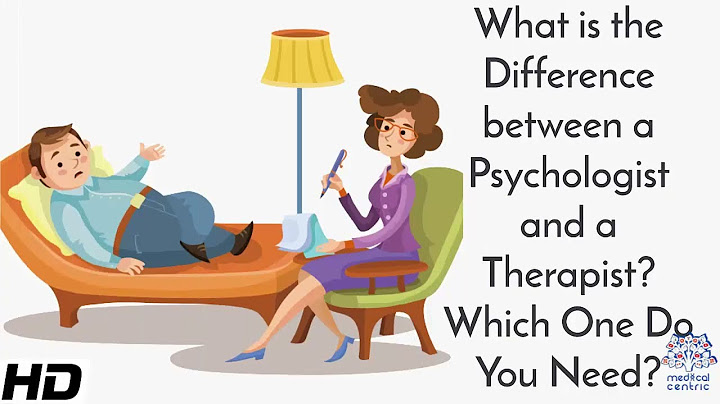Ever since I founded my practice, I have been asked by students, pastors, and other professionals how to become a pastoral counselor. The answer isn't simple and takes some explanation, which is why we have included this article. First, we need to define what pastoral counseling is in order to understand what a pastoral counselor does. This article is provided for educational purposes only and does not constitute legal or professional advice. Show
1. What is pastoral counseling? Pastoral counseling integrates the insights of spirituality with counseling skill and theory. Pastoral counselors are either: ordained clergy who have graduate training in pastoral care and may sometimes be certified by a national organization in pastoral counseling — or — state licensed counselors who have graduate training in counseling but also additional training in theology and psychospiritual integration. Pastoral counseling is a unique form of counseling because practitioners are uniquely equipped to assist the healing of the whole person—spirit, soul, and body. Pastoral counselors may suggest prayer, study of scripture, spiritual disciplines, books, and other resources to facilitate growth inside and outside counseling sessions. 2. What education and credentials are required to become a pastoral counselor? Pastoral counselors are usually ordained, commissioned, or licensed by their church or denomination. Requirements for this vary by individual religious bodies, but often require a Master of Divinity (MDiv) or Master of Arts in Theology (MA) from a university, seminary, or institution accredited by the Association of Theological Schools (ATS). Some may also hold a state license in professional counseling, though some states allow pastoral counselors to be unlicensed as long as they are ordained and have ethical oversight. 3. How can I become trained in pastoral
counseling? ACPE now offers training through two programs: one for state-licensed therapists and one for ordained clergy. ACPE does not certify these professionals — these are continuing education programs. The program for state-licensed therapists is called the Spiritually Integrated Psychotherapy (SIP) program. The training for ordained clergy and church leaders in parish ministry is called the Pastoral Care Specialist (PCS) training program. Arizona Christian Counseling currently hosts the PCS Program: IBCC Credential TypesBOARD OF CHRISTIAN PROFESSIONAL & PASTORAL COUNSELORS (BCPPC)Board Certified Biblical Counselor (BCBC)Basic Requirements:
Board Certified Pastoral Counselor (BCPC)Basic Requirements:
Board Certified Christian Counselor (BCCC)Basic Requirements:
BCPPC SpecialistCertified Sexual Addiction Specialist (CCSA)Addiction and Recovery Specialist (CARS)Certified Post-Traumatic Stress Disorder (PTSD) Specialist (CPTSDS) Basic Requirements:
BOARD OF CHRISTIAN LIFE COACHING (BCLC)Certified Christian Life Coach (CCLC)Basic Requirements:
Certified Advanced Christian Life Coach (CACLC)Basic Requirements:
Certified Master Christian Life Coach (CMCLC)Basic Requirements:
Certified Professional Christian Life Coach (CPCLC)Basic Requirements:
BCLC SpecialistCertified Crisis Pregnancy Life Coaching Specialist (CCPLC)
Certified James C. Dobson Life Coach Specialist (3 specific areas) (CJDLC)
BOARD OF CHRISTIAN CRISIS AND TRAUMA RESPONSE (BCCTR)Board Certified First Responder (BCFR)Basic Requirements:
Board Certified Crisis Response Specialist (BCCRS)Basic Requirements:
Board Certified Crisis Response Chaplain (BCCRC)Basic Requirements:
Board Certified Crisis Response Therapist (BCCRT)Basic Requirements:
Download the IBCC Credential Types What is the difference between counseling and pastoral counseling? Pastoral counselors define themselves as pastors first. Priority is given to religious faith, community, and obligation. Counselors do not profess a faith commitment and are often discouraged to do so.
Is pastoral counseling regulated?Pastoral Counselors such as Pastors, Ministerial Counselors, Chaplains and Church Counselors are credentialed and regulated by various ecclesiastical governing structures and may be influenced by professional associations.
Can pastors be counselors?Pastoral counselors can range from ordained religious figures like priests, chaplains, and rabbis to practicing psychotherapists who provide what some call pastoral psychotherapy.
Are pastors trained in counseling?Though pastors usually do not have as much training as licensed counselors do, they will still get some training as they go through college and graduate school.
|

Advertising
LATEST NEWS
Advertising
Populer
Advertising
About

Copyright © 2024 en.frojeostern Inc.









